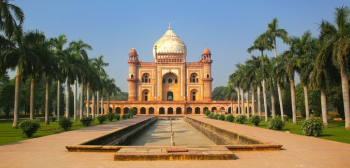- #=558 QS Global World Ranking
- PublicStatus
- Very HighResearch Output
- 7,759Total Students
- 693Faculty
- 54Int'l Students
QS Global World Ranking
The University’s position in the current QS World University Rankings.
The University’s position in the current QS World University Rankings.
Status
Whether the University is funded by the government of that country or state, or funded by private donations.
Whether the University is funded by the government of that country or state, or funded by private donations.
Research Output
The research intensity of the University, based on the number of papers output relative to the University’s size.
The research intensity of the University, based on the number of papers output relative to the University’s size.
Total Students
The number of full time equivalent students enrolled at the University.
The number of full time equivalent students enrolled at the University.
Faculty
The number of full time equivalent teaching staff employed by the University.
The number of full time equivalent teaching staff employed by the University.
Int'l Students
The number of full time equivalent international students enrolled at the University.
The number of full time equivalent international students enrolled at the University.
Jawaharlal Nehru University
About
Read more
Read less
Young at thirty years, as universities go, what has lent strength and energy to Jawaharlal Nehru University is the vision that ideas are a field for adventure, experimentation and unceasing quest and diversity of opinions its chief premise. In the early 1970s, when JNU opened its doors to teachers and students, frontier disciplines and new perspectives on old disciplines were brought to the Indian university system. The excellent teacher-student ratio at 1:10, a mode of instruction which encouraged students to explore their own creativity instead of reproducing received knowledge,and an exclusively internal evaluation were a new experiment on the Indian academic landscape; these have stood the test of time. The very Nehruvian objectives embedded in the founding of the University, national integration, social justice, secularism, the democratic way of life,international understanding and scientific approach to the problems of society had built into it constant and energetic endeavour to renew knowledge through self-questioning.The once rugged terrain of the Aravlli hill range, where the 1000 -acre campus is housed is now lush green. Parts of it host dense forests,sustaining a birdwatcher's paradise and some forms of wild life. The JNU campus is a microcosm of the Indian nation, drawing students from every nook and corner of the country and from every group and stratum of society. To make sure that this is so, annual admission tests are simultaneously held at 37 centres spread across the length and breadth of the country, and special care is taken to draw students from the underprivileged castes and ethic groups by reserving 22.5 per cent of seats for them. Overseas students form some 10 percent of the annual intake.Students' hostels and blocks of faculty residences are interspersed with one another, underlining the vision of a large Indian family.
About
Young at thirty years, as universities go, what has lent strength and energy to Jawaharlal Nehru University is the vision that ideas are a field for adventure, experimentation and unceasing quest and diversity of opinions its chief premise. In the early 1970s, when JNU opened its doors to teachers and students, frontier disciplines and new perspectives on old disciplines were brought to the Indian university system. The excellent teacher-student ratio at 1:10, a mode of instruction which encouraged students to explore their own creativity instead of reproducing received knowledge,and an exclusively internal evaluation were a new experiment on the Indian academic landscape; these have stood the test of time. The very Nehruvian objectives embedded in the founding of the University, national integration, social justice, secularism, the democratic way of life,international understanding and scientific approach to the problems of society had built into it constant and energetic endeavour to renew knowledge through self-questioning.The once rugged terrain of the Aravlli hill range, where the 1000 -acre campus is housed is now lush green. Parts of it host dense forests,sustaining a birdwatcher's paradise and some forms of wild life. The JNU campus is a microcosm of the Indian nation, drawing students from every nook and corner of the country and from every group and stratum of society. To make sure that this is so, annual admission tests are simultaneously held at 37 centres spread across the length and breadth of the country, and special care is taken to draw students from the underprivileged castes and ethic groups by reserving 22.5 per cent of seats for them. Overseas students form some 10 percent of the annual intake.Students' hostels and blocks of faculty residences are interspersed with one another, underlining the vision of a large Indian family.
University highlights
- 2022#561-570
- 2023#601-650
- 2024#601-610
- 2025#=580
- 2026#=558
QS Stars is a rating system that helps you select the right university based on your
interests. It provides a detailed look at an institution, identifying which universities rate highest in
the
specific topics that matter to you, like facilities, graduate employability, social responsibility,
inclusiveness, and more.
Campus locations
New Mehrauli Road, New Delhi, IN,
New Mehrauli Road , New Delhi , India , 110067
Similar Universities
Amrita Vishwa Vidyapeetham
Amrita Vishwa Vidyapeetham, Coimbatore
Al-Farabi Kazakh National University
Prospekt Al-Farabi 71, Almaty
=207 QS World University Rankings 5 QS starsUniversidad Militar Nueva Granada
Carrera 11 No. 101 80, Bogotá D.C.
Macromedia University of Applied Sciences
Macromedia University of Applied Sciences, Berlin
Related content

Top Universities for Politic…
By
Sabrina
Collier
Updated
109
0

Top 10 Universities in India…
By
Sabrina
Collier
Updated
261
0

Top Universities for Politic…
By
Sabrina
Collier
Updated
113
0

Top 10 Universities in India…
By
Laura
T
Updated
150
0

Top Universities for Politic…
By
Laura
T
Updated
105
0

Top Universities in Asia for…
By
Laura
Bridgestock
Updated
99
0

Top Universities in Asia for…
By
Craig
OCallaghan
Updated
231
0

Top Universities in India
By
Laura
Bridgestock
Updated
462
1

Rethinking international stu…
By
Anna
Zielinska
Updated
1.9k
0
Test preparations
Featured University


Sponsored
438
QS World University Rankings
-
10 UG & 47 PGTotal courses
-
Private for ProfitStatus
-
HighResearch output
Jawaharlal Nehru University
EN

















